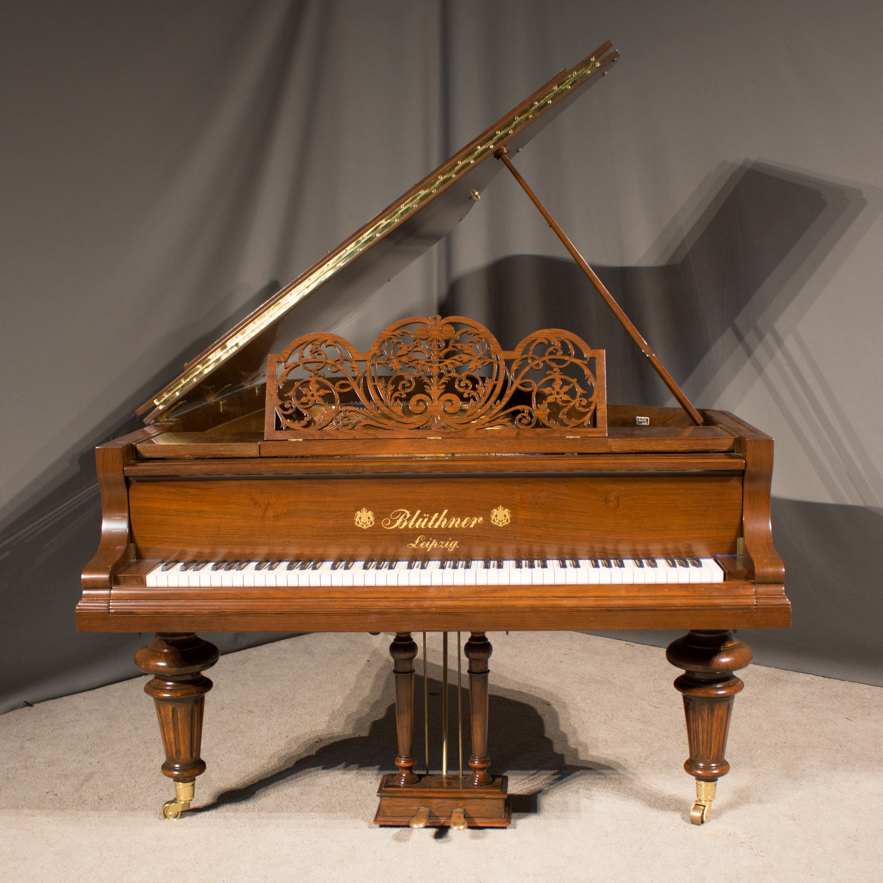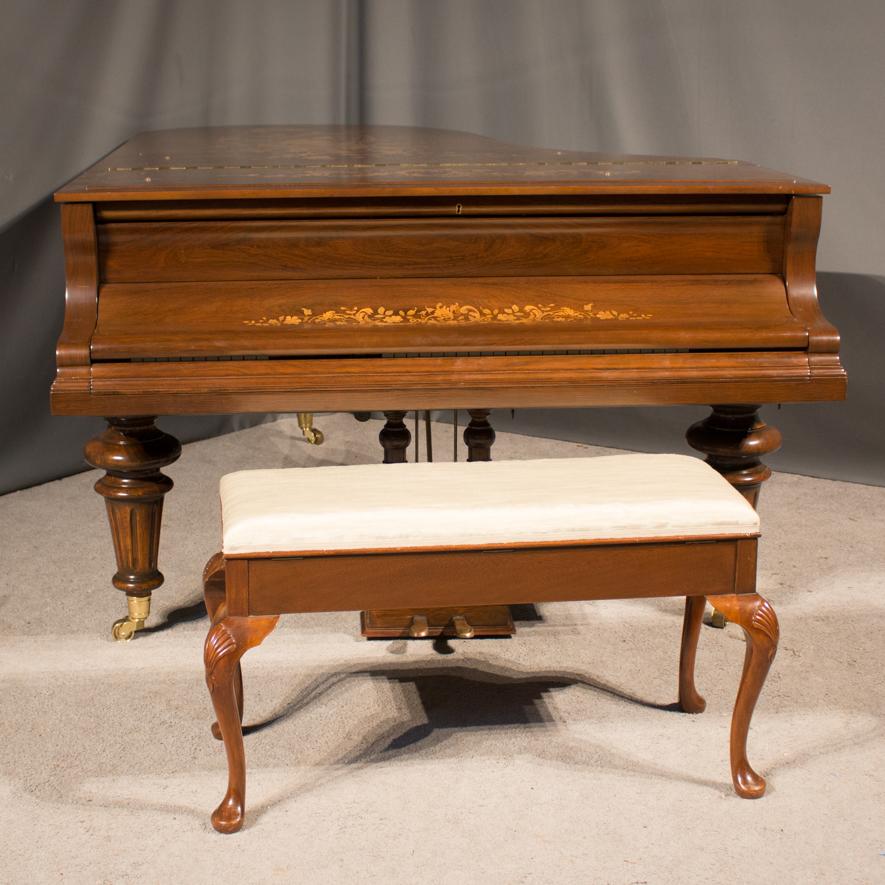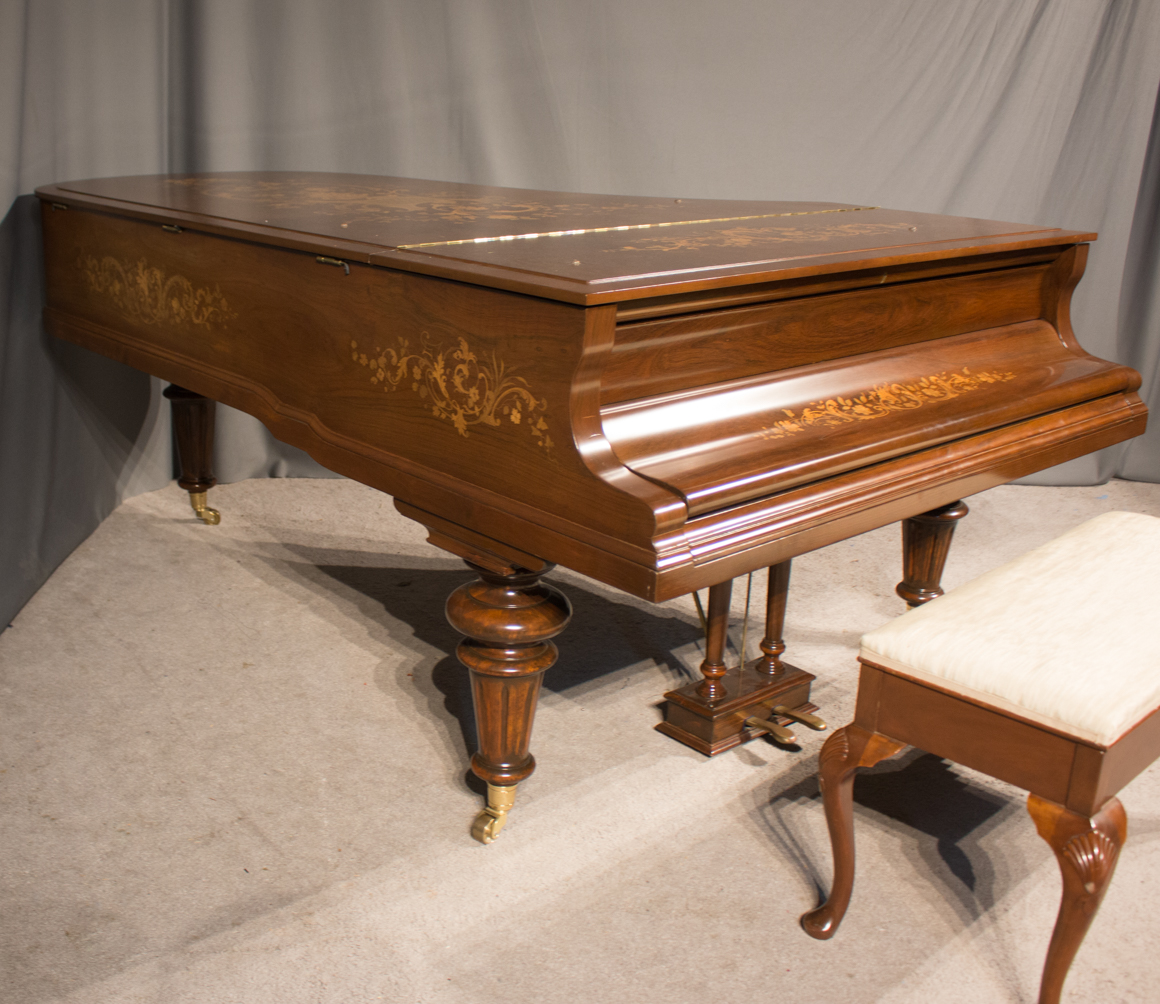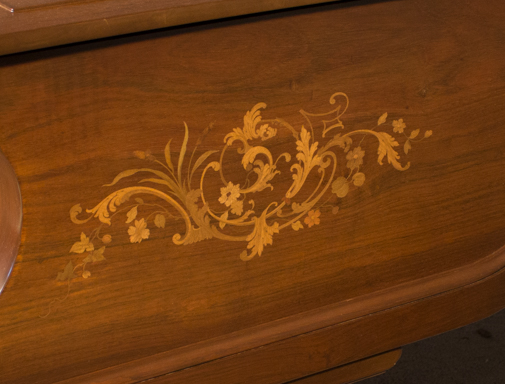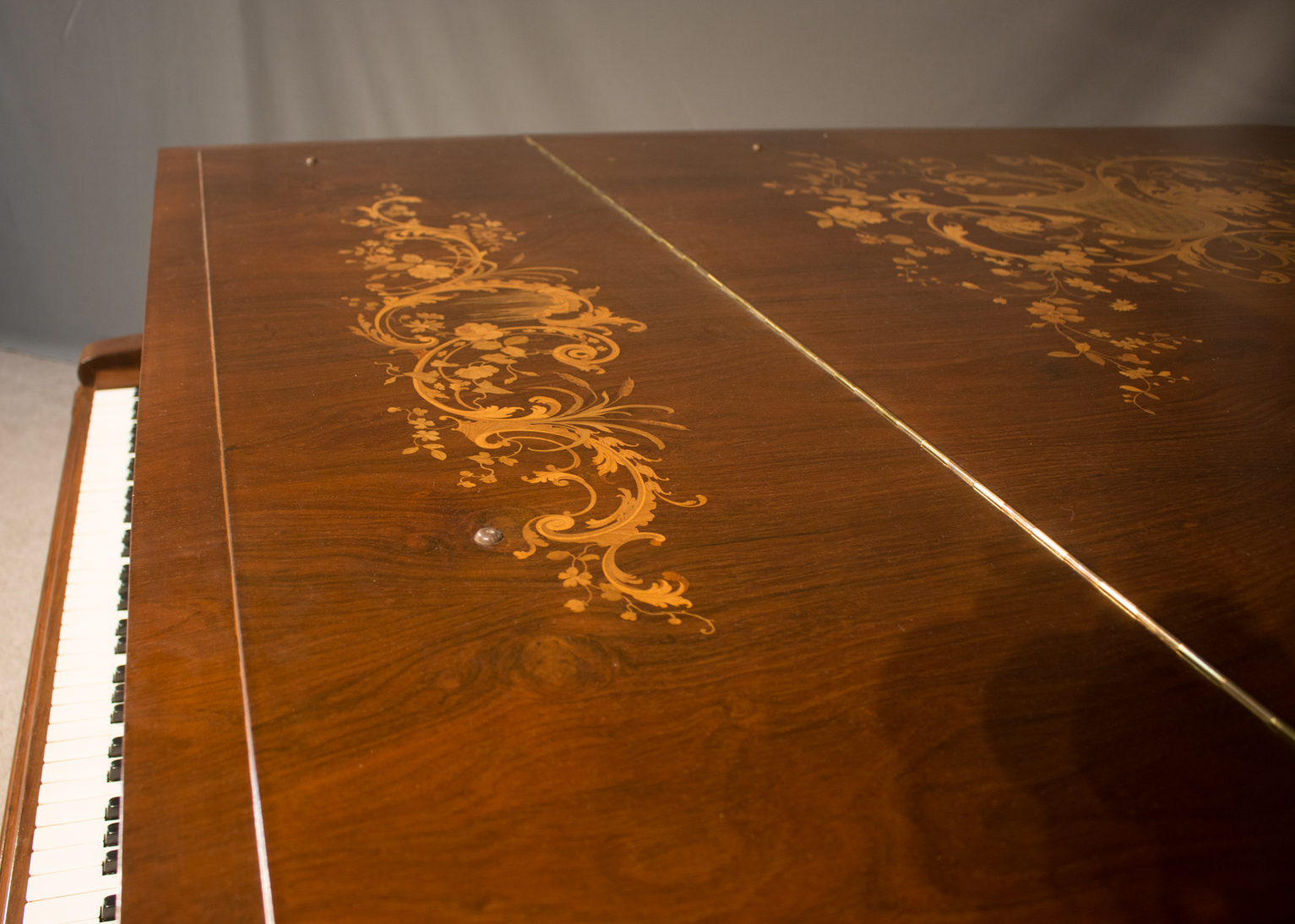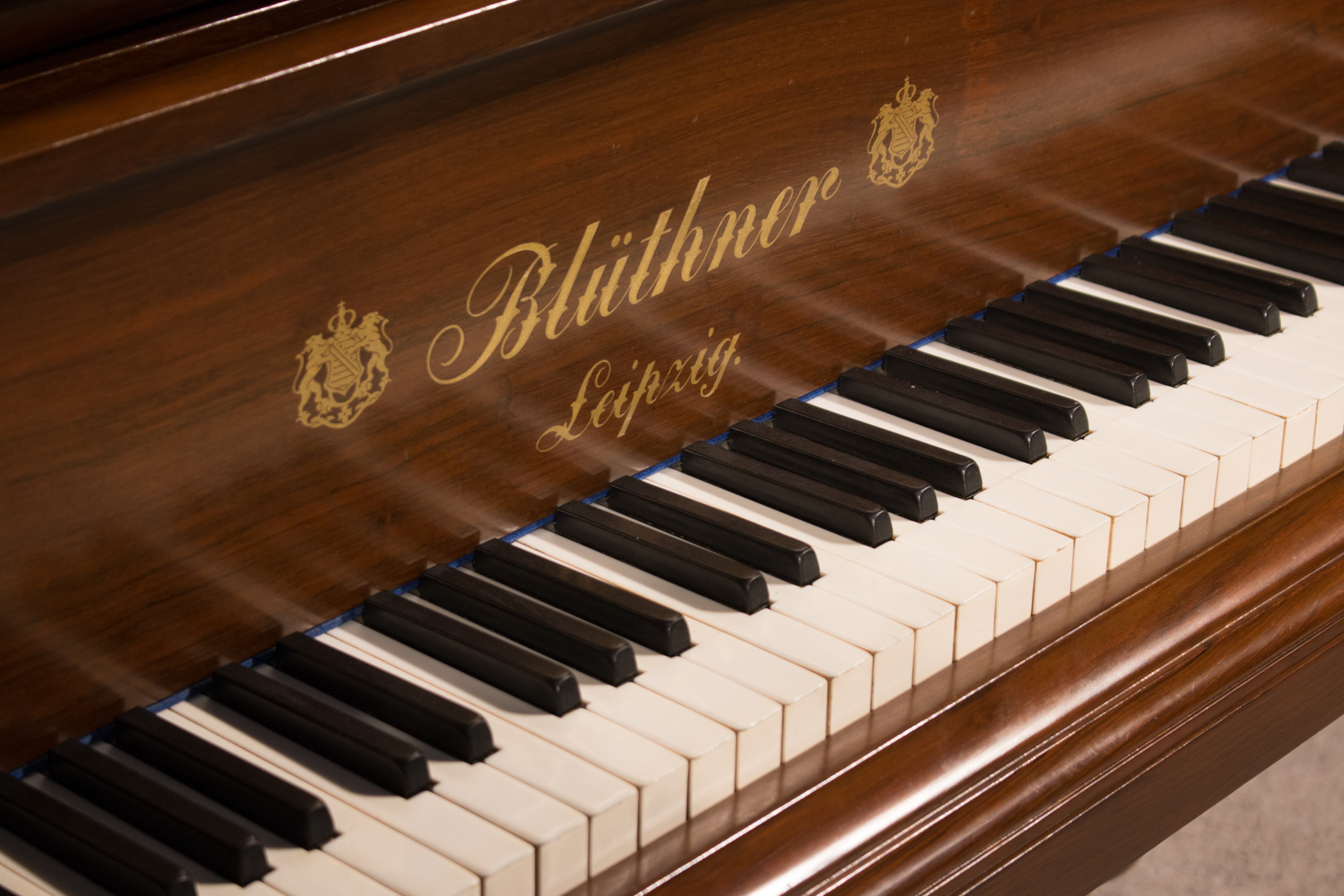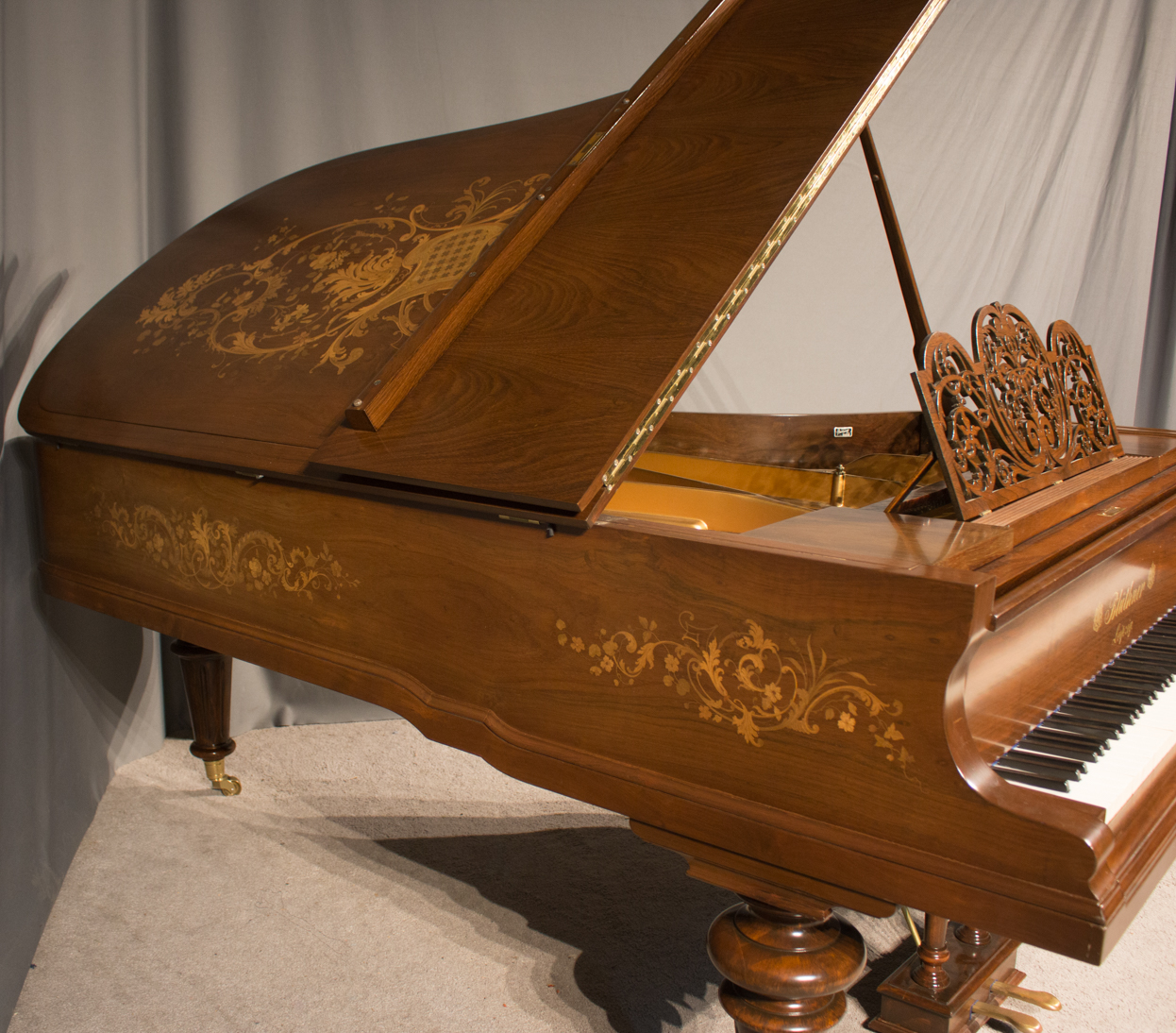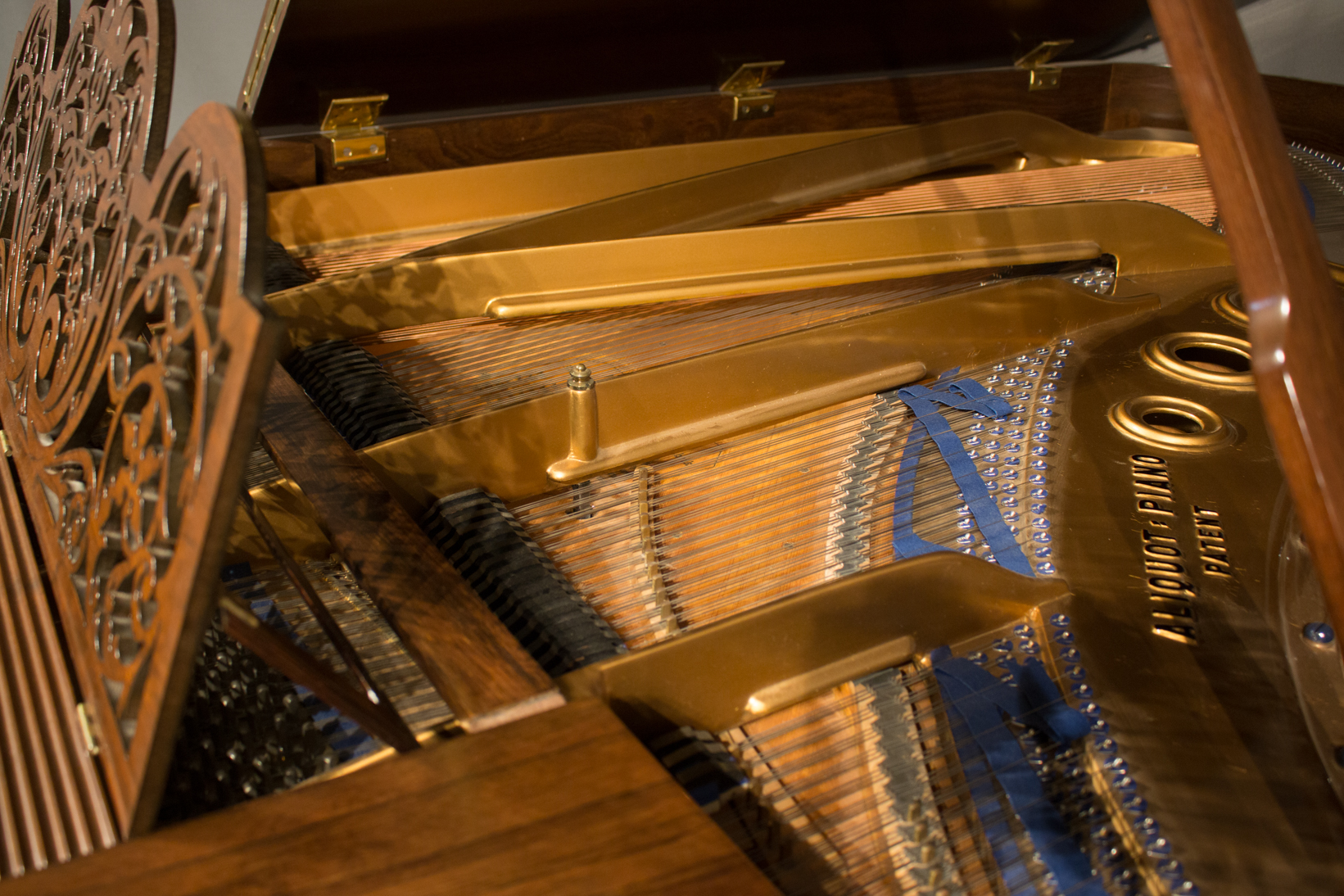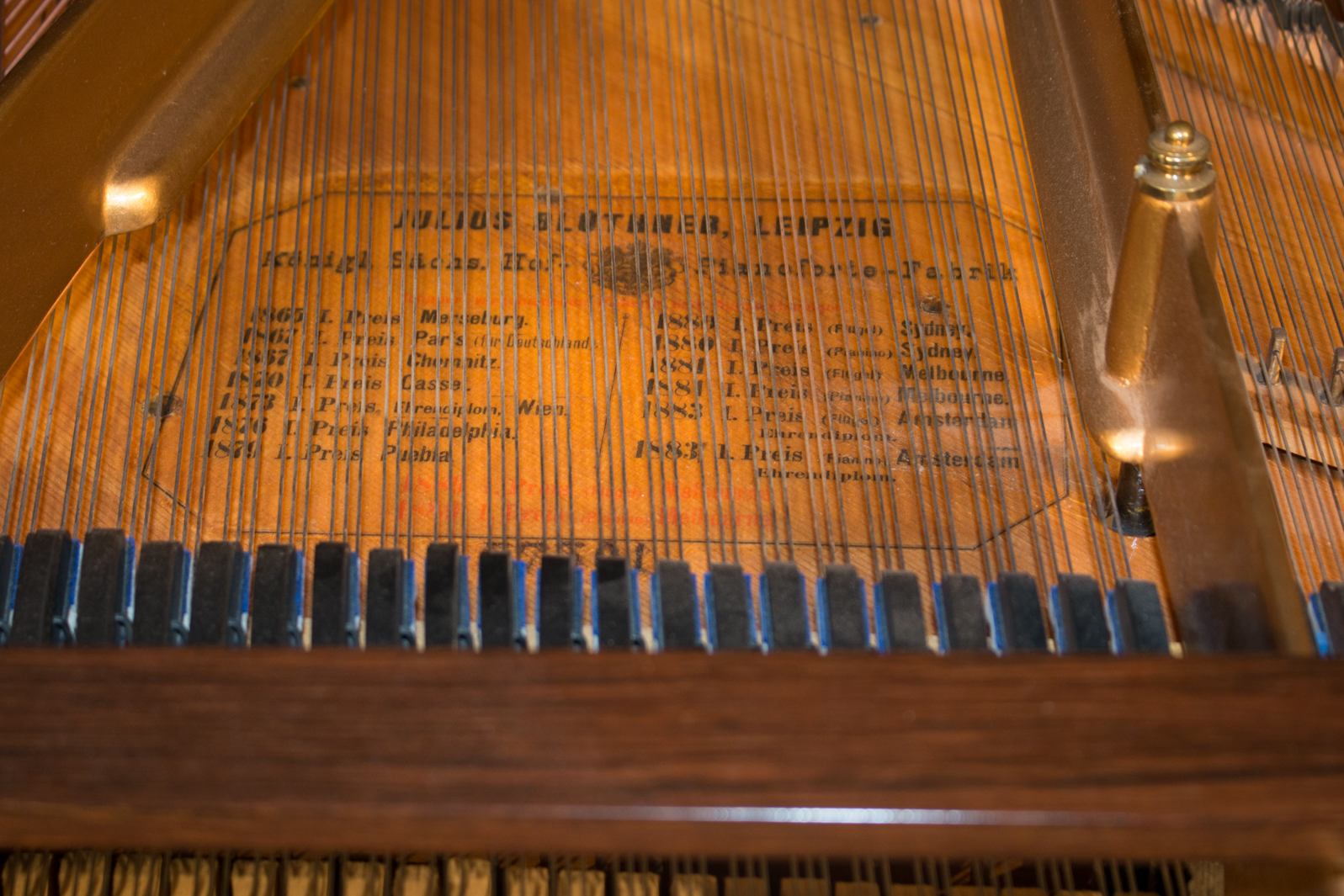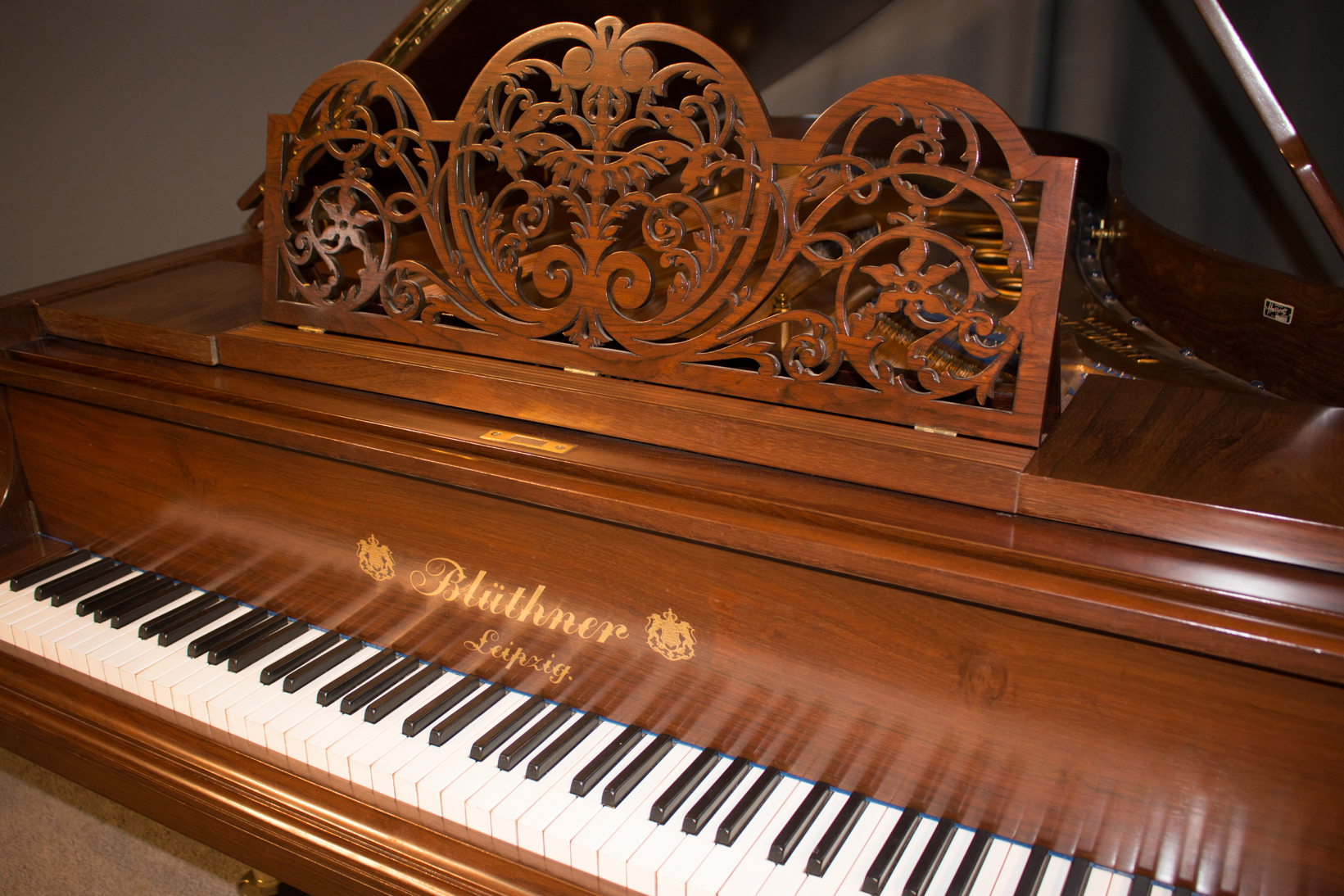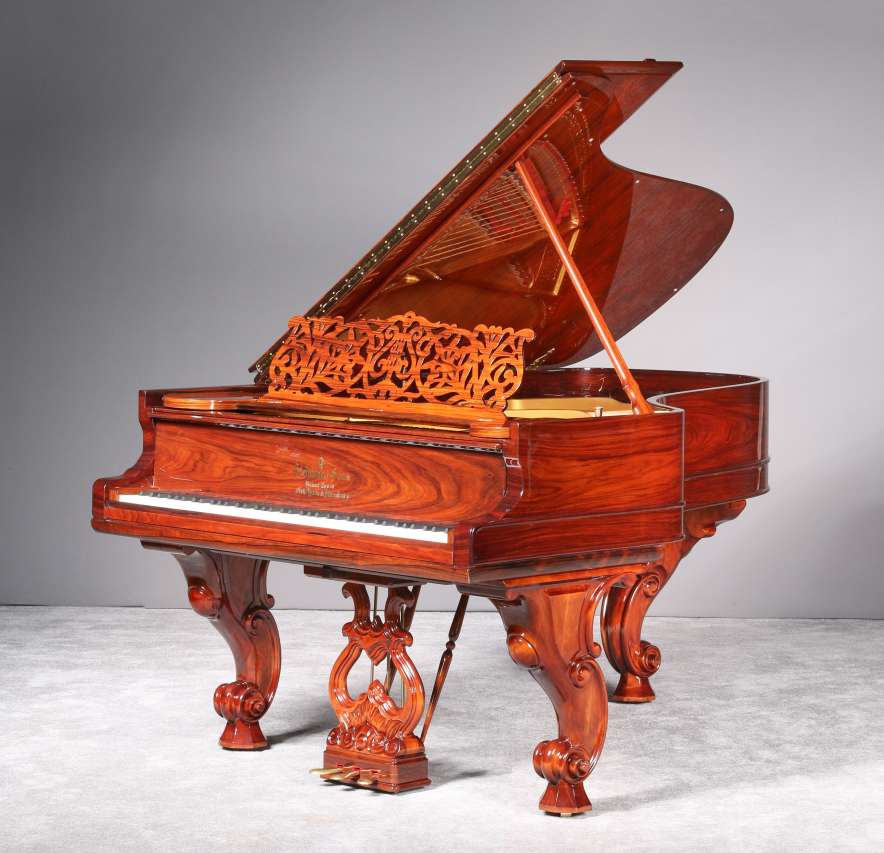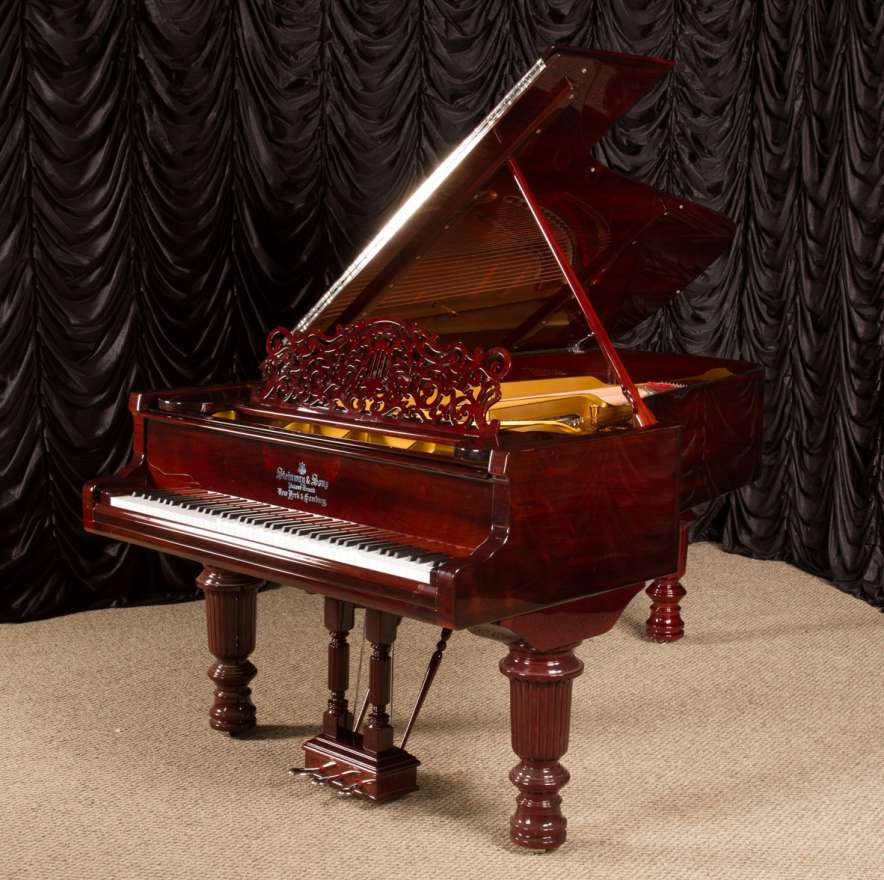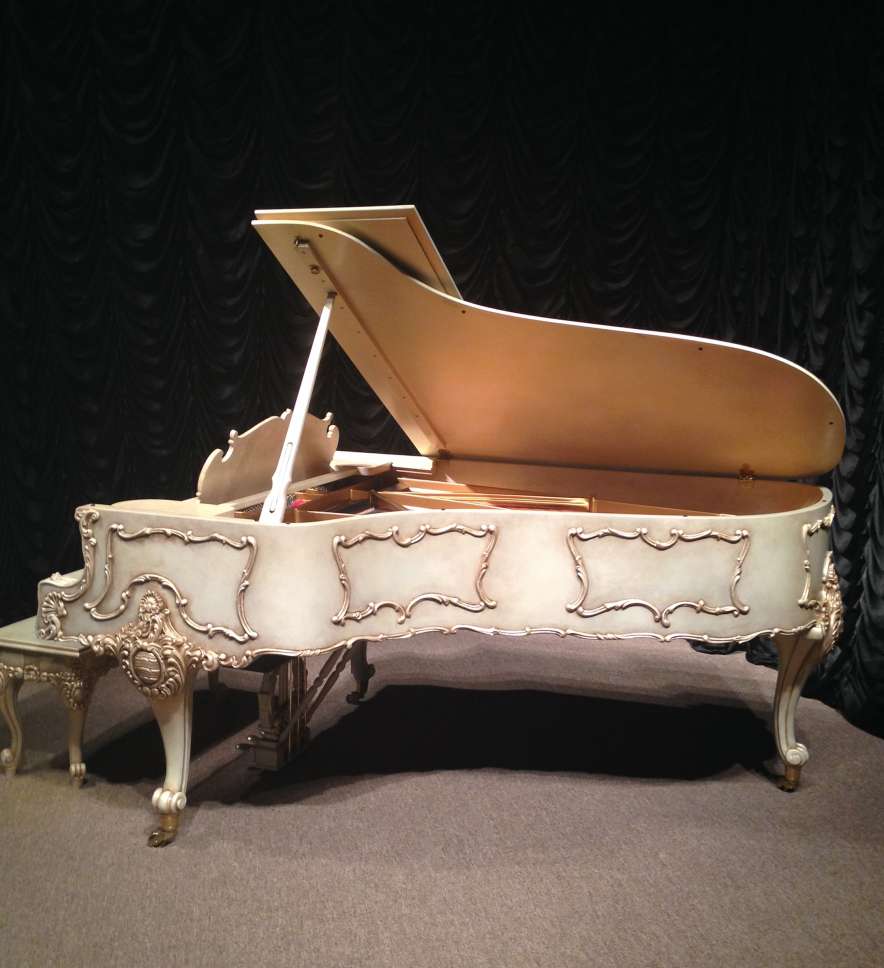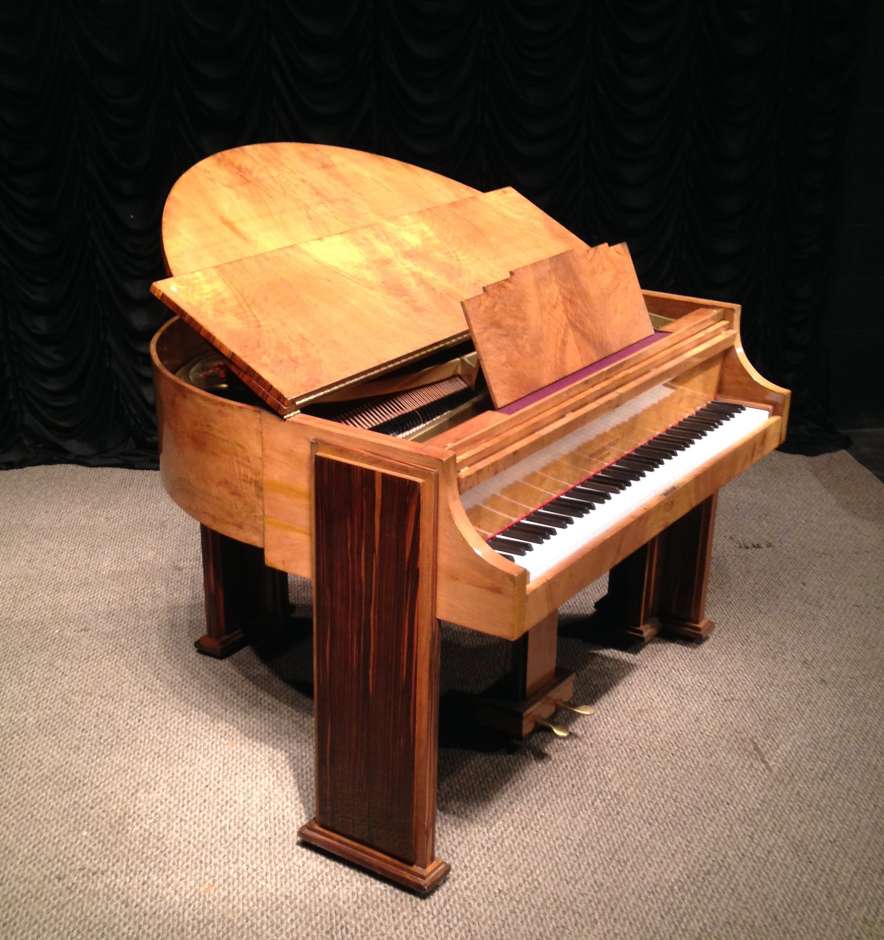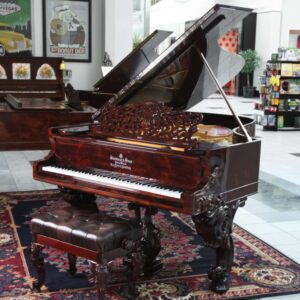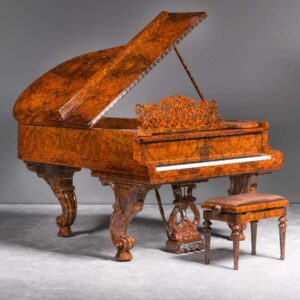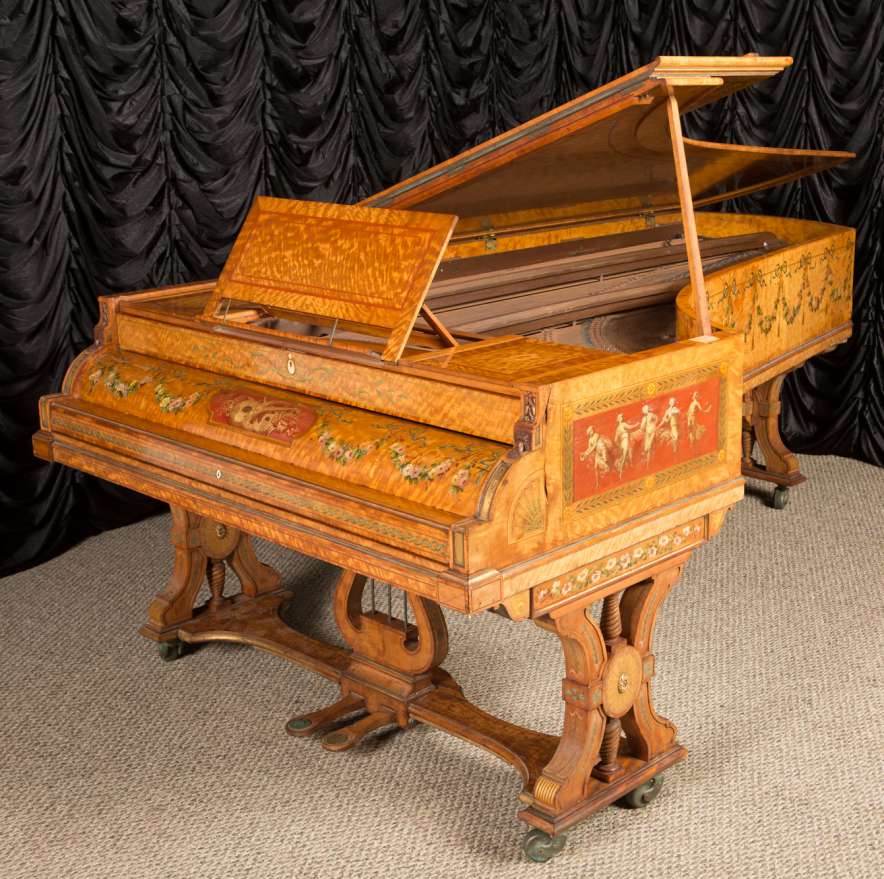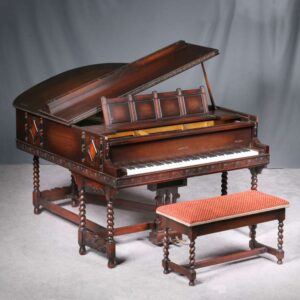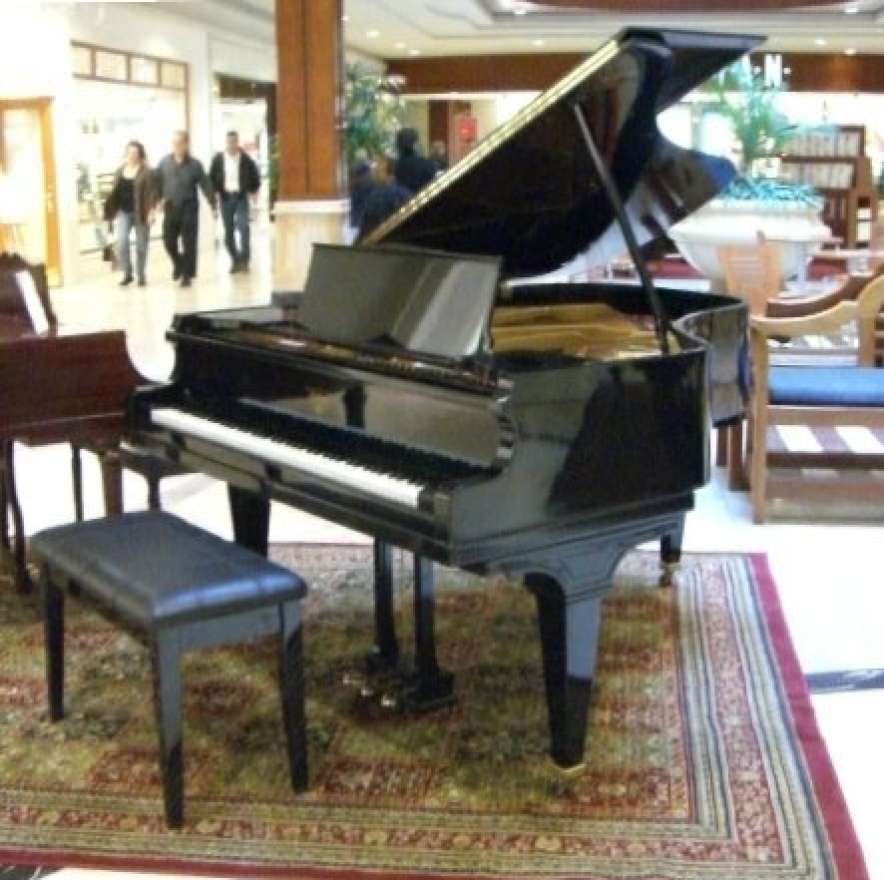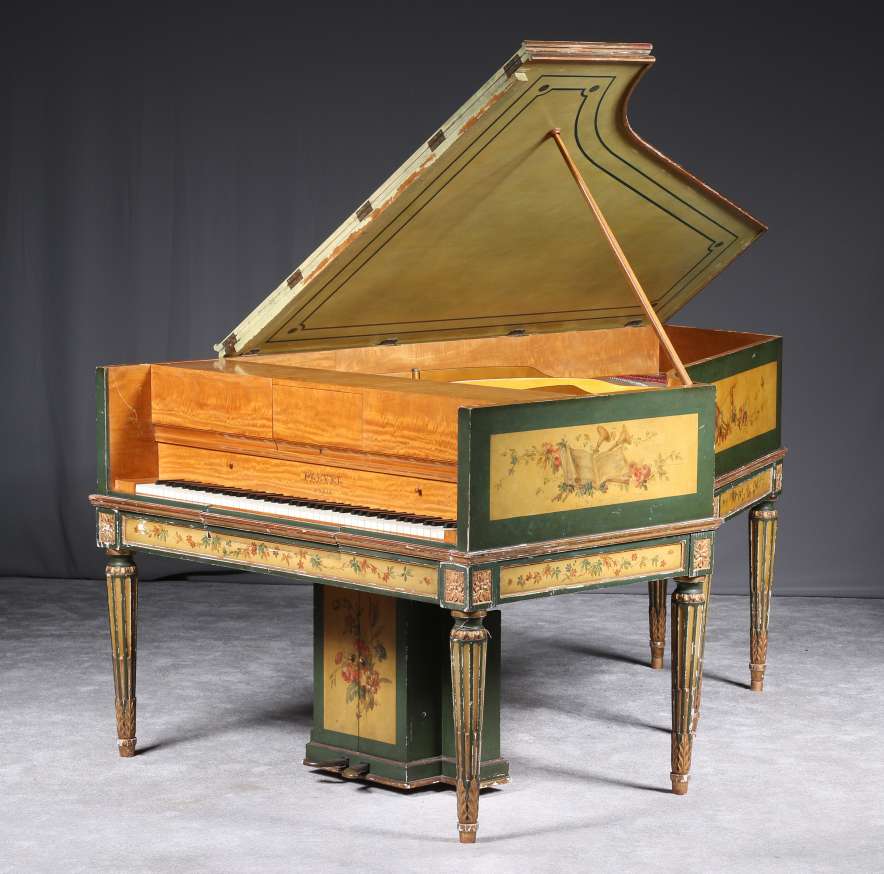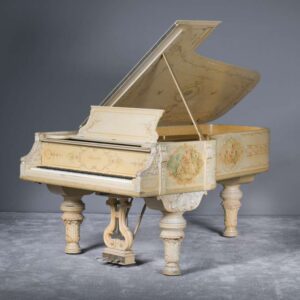Description
Bluthner’s patented “Aliquot” system used extra strings to vibrate sympathetically in order to create a uniquely warm, rich tonal quality
Julius Bluthner has long been considered one of the finest piano manufacturers in Germany. Founded in 1853, Bluthner is one of the few piano manufacturers in the world to have survived well over 165 years in continuous operation.
This piano is one of Bluthner’s patent “Aliquot” pianos. In 1873 Julius Bluthner introduced his patented “aliquot stringing system” which uses an additional un-dampened string in each note of the top three piano octaves. This fourth strings is not directly struck by the piano hammer, but rather vibrates sympathetically in order to create a uniquely warm, rich tonal quality.
This exquisite piano is made of walnut wood with elaborate inlaid veneers. The overall appearance of the piano is truly stunning. The instrument is being restored to like-new condition, inside and out, all with a historical perspective in mind.
If desired, this piano can be equipped with the Pianomation player system. The Pianomation player system allows the piano to play by itself by live streaming music through any smart device. Over 10,000 song titles are available.
Below is a more detailed tidbit of history on Bluthner Pianos and a wonderful tie in from the person who owns this piano and is selling through us.
In 1892 in Leipzig, Germany, Julius Bluthner built an exceptional concert grand piano, serial number 37301. Nothing more is known of the early years of this piano because during the second World War, the Bluthner factory with all of its records was destroyed. However, because of the fine decorative inlay in the cabinet, the piano was presumably sold to nobility or to a very prosperous music lover.
In 1963 the piano surfaced at Harrod's of London where my father purchased it as a gift for my mother and shipped it halfway across the world to California. It has been in my family ever since and was my mother's prized possession.
Bluthner pianos are recognized for their uniquely warm and rounded sound, tones that blend easily with the human voice and that are particularly well suited to chamber music. They are unique because of the patented aliquot scaling system. This system uses a fourth string located above the treble strings, which is not struck by the hammer, but free to vibrate in sympathy. The extra strings are tuned an octave higher than the actual note and offer enriched overtones and harmonies to the piano's upper register.
DeBussey and Brahms wrote for the Bluthner; John Lennon would only play a Bluthner in concert.

